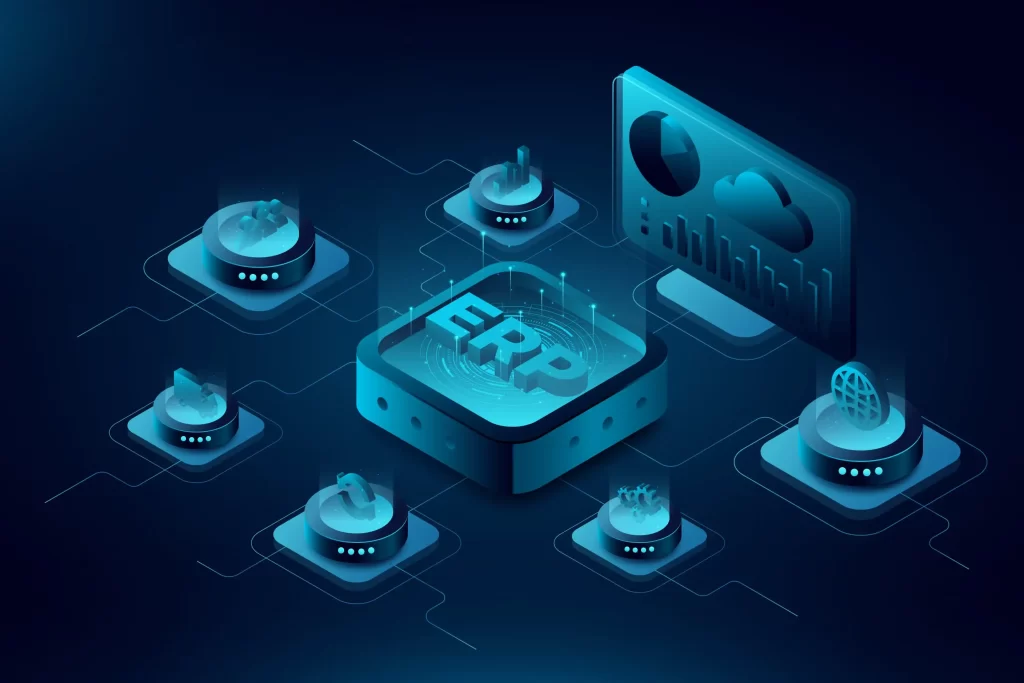It’s important to have a clear understanding of ERP solutions and their potential impact on your business. Unfortunately, there are several common misconceptions surrounding these software systems that can prevent organizations from fully realizing their benefits. In this article, we’ll debunk five of the most prevalent misconceptions about ERP solutions.
1: ERP Solutions are Only for Large Enterprises
One of the most persistent myths surrounding ERP solutions is that they are only suitable for large enterprises with complex operations. In reality, however, like Microsoft ERP systems are beneficial for businesses of all sizes. Whether you’re a small startup or a mid-sized organization, ERP solutions can streamline your workflows, improve data accuracy, and provide valuable insights into your business operations.
2: ERP Solutions are Too Expensive
Another common misconception about ERP solutions is that they are too expensive for small and medium-sized businesses. While it’s true that implementing an ERP system can be a significant investment, the benefits they offer often outweigh the costs in the long run. With an ERP system in place, you can reduce manual data entry and streamline processes, freeing up valuable time and resources that can be allocated elsewhere in your business.
3: ERP Solutions are Difficult to Implement
Some organizations shy away from implementing an ERP solution due to the perceived difficulty of the implementation process. While it’s true that implementing an ERP system requires careful planning and coordination, the process can be simplified by working with an experienced ERP provider. With the right partner, you can minimize disruptions to your daily operations and ensure a smooth transition to your new system.
4: ERP Solutions are Inflexible
Another common misconception about ERP solutions is that they are inflexible and can’t be customized to meet the unique needs of your business. In reality, however, modern ERP systems are highly configurable, allowing you to tailor the software to your specific requirements. From custom workflows to personalized reports, ERP solutions can be adapted to meet your organization’s unique needs and processes.
5: ERP Solutions are Only for Manufacturing Companies
While ERP solutions are certainly beneficial for manufacturing companies, they are by no means limited to this industry. ERP systems can be used across a variety of industries, including healthcare, retail, and professional services. No matter what industry you’re in, an ERP system can help you gain better visibility into your operations, reduce costs, and improve overall efficiency.
6: ERP Solutions are Only for Large Enterprises
It’s true that large enterprises often use ERP solutions to manage complex supply chains and manufacturing operations. However, smaller businesses can also benefit from implementing an ERP system. For example, a small e-commerce company can use an ERP solution to manage inventory, orders, and customer data in one central location. This can improve order accuracy, reduce fulfillment times, and enhance customer satisfaction. A smaller business may also benefit from the cost savings associated with reduced manual data entry and streamlined processes.
7: ERP Solutions are Too Expensive
While it’s true that implementing an ERP system can be a significant investment, there are several ways to reduce costs and increase ROI. For example, some ERP providers offer cloud-based solutions that require little upfront investment and can be scaled up or down as needed. Additionally, the cost savings associated with reduced manual data entry, streamlined processes, and improved efficiency can quickly offset the initial investment.
8: ERP Solutions are Difficult to Implement
Implementing an ERP system does require careful planning and coordination. However, working with an experienced ERP provider can simplify the process and minimize disruptions to your daily operations. A good ERP provider like Dynamics 365 partners will work with you to understand your business processes and tailor the system to meet your unique needs. They will also provide training and support to ensure a smooth transition to your new system.
9: ERP Solutions are Inflexible
While some older ERP systems may be inflexible and difficult to customize, modern ERP solutions are highly configurable. With a modern ERP system, you can customize workflows, reports, and dashboards to meet your specific requirements. For example, a healthcare organization may need to customize their ERP system to comply with HIPAA regulations, while a construction company may need to track project progress and costs in real-time.
Conclusion:
ERP solutions offer a wealth of benefits for organizations of all sizes and industries. However, it’s important to dispel some of the common myths surrounding these software systems in order to fully realize their potential. By understanding the truth behind these misconceptions, you can make an informed decision about whether an ERP system is right for your business. With the right ERP provider, implementation partner, and a clear understanding of your organization’s unique needs, you can successfully implement an ERP system that improves efficiency, reduces costs, and drives growth.
Visit here – Mobile App Development Company

